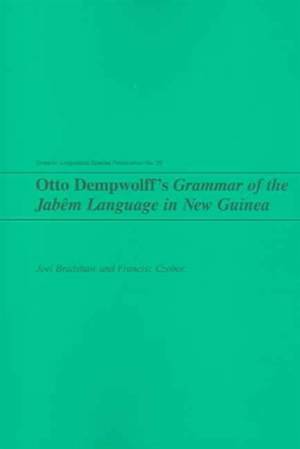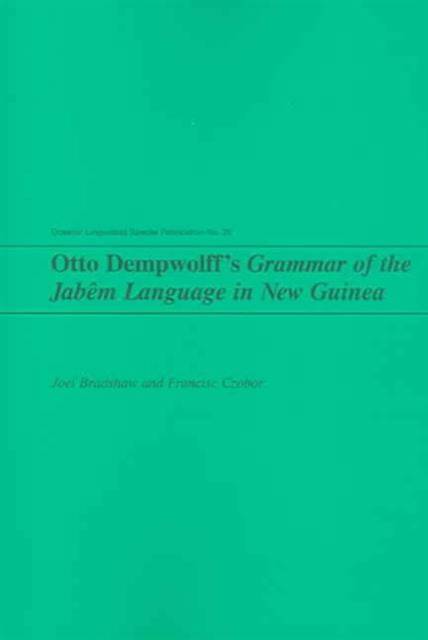
- Afhalen na 1 uur in een winkel met voorraad
- Gratis thuislevering in België vanaf € 30
- Ruim aanbod met 7 miljoen producten
- Afhalen na 1 uur in een winkel met voorraad
- Gratis thuislevering in België vanaf € 30
- Ruim aanbod met 7 miljoen producten
Zoeken
Omschrijving
Otto Dempwolff is far better known for his historical and comparative work than for his descriptive and theoretical contributions to linguistics. However, the work to which he devoted his last efforts before he died in 1938 was a grammatical description of Jabêm, an Austronesian language adopted and spread as a church and school lingua franca by the German Lutheran mission in what is now Morobe Province, Papua New Guinea.
Although Jabêm is one of the best-documented languages in Melanesia (at least in Jabêm and German), the only materials available in English have been Streicher's (1982) Jabêm-English Dictionary, a brief grammar sketch in Tryon's (1995) Comparative Austronesian Dictionary, and sporadic articles on Jabêm tonogenesis and verb serialization. This translation of Otto Dempwolff's grammar now adds a comprehensive overview and data-rich synthesis of Jabêm grammar. Because he wrote his grammar at the request of the Lutheran missionaries, Dempwolff took care to make his description understandable to an audience of educated lay people as well as to linguists by explaining his terminology and reasoning as he introduced new topics. This task was made all the more necessary because he considered Jabêm to be the most difficult Melanesian language he had ever encountered, one for which European grammatical models proved entirely inadequate. The result is a highly original, yet surprisingly accessible grammatical description by one of the founders of Austronesian comparative linguistics.Specificaties
Betrokkenen
- Auteur(s):
- Uitgeverij:
Inhoud
- Aantal bladzijden:
- 131
- Taal:
- Engels
- Reeks:
Eigenschappen
- Productcode (EAN):
- 9780824829322
- Verschijningsdatum:
- 31/01/2005
- Uitvoering:
- Paperback
- Formaat:
- Trade paperback (VS)
- Afmetingen:
- 162 mm x 230 mm
- Gewicht:
- 190 g

Alleen bij Standaard Boekhandel
+ 57 punten op je klantenkaart van Standaard Boekhandel
Beoordelingen
We publiceren alleen reviews die voldoen aan de voorwaarden voor reviews. Bekijk onze voorwaarden voor reviews.











